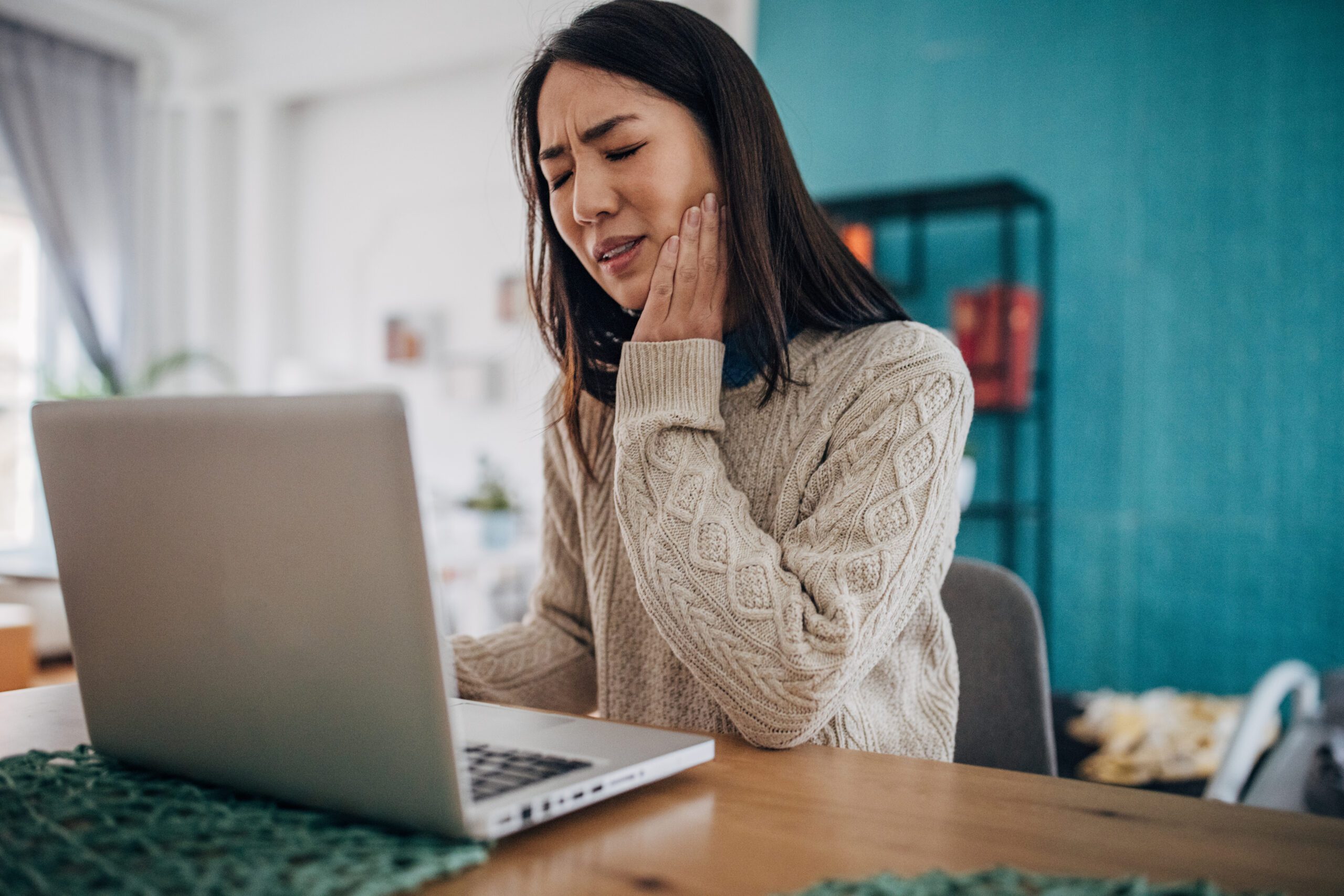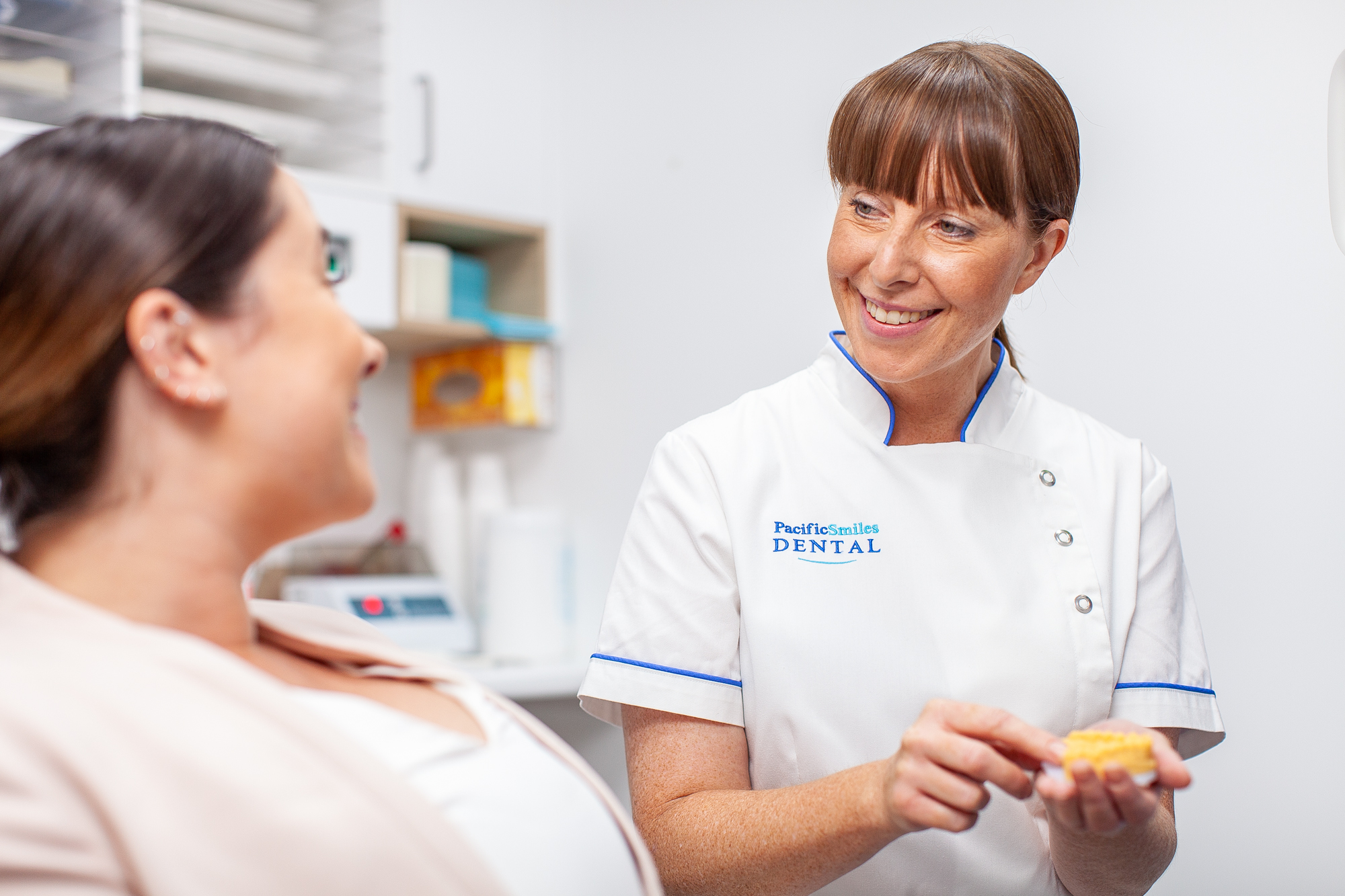 20 September 2022
20 September 2022
Most of us are aware of the aches and pains of aging, though our mouth and importantly, our teeth tend to demand less attention. There is real value in prioritising our oral care as we get older, because poor oral health can negatively impact our overall health and wellbeing.
Teeth show signs of wear and tear as we age and start to appear dull and more yellow. Our teeth can also appear shorter and the gums recede, showing the darker roots of the teeth. As well as changes in the appearance of our teeth, they can feel more sensitive. Often there are changes in the bite and alignment of our teeth, caused by tooth grinding and the teeth moving towards the front of the mouth. Even if you had straight teeth or orthodontics when you were younger, it’s likely you will have some shifting with your teeth coming forward as you age.

Looking after teeth as we age
Prevention is the most important strategy to best care for older teeth. Decay can still happen, particularly where the tooth meets the gum, which is why thorough tooth brushing twice a day with fluoride toothpaste is so important. Floss daily and book an appointment to see your dentist regularly for twice yearly expert cleaning and assessment. Detecting problems early is a vital part of minimising more complicated treatment and expense.
Consider using an electric toothbrush. These work on the principle of a small, oscillating head which gets into areas of the teeth and mouth that can be hard to reach. They also have the benefit of a timer, a good way to ensure adequate brushing time.
Yellow teeth can cause embarrassment and reduce the confidence of some people, also adding to an older appearance. Tooth whitening products can be very effective in removing surface stains and restoring tooth whiteness. Toothpastes with whitening agents such as hydrogen peroxide can be very useful.[1] If this doesn’t work, professional whitening treatments prescribed by your dentist may be more effective.
Get into the habit of always rinsing your mouth with plain water after drinking tea, coffee and red wine.[2] If a food or drink can stain a cup, then it’s capable of staining our teeth.
If you’re grinding and clenching, speak with your dentist about a wearing a night guard. Pressure on teeth can create significant force, leading to teeth cracking and damage to the enamel.
Speak with your dentist about caring for any crowns, veneers, implants, bonding, bridgework or dentures you may have. It is essential to maintain the integrity of complex dental restorations to support a healthy mouth. Some medications, such as antidepressants and antihistamines can cause a dry mouth (xerostomia). Drinking fluoridated tap water helps to rebuild tooth enamel and prevent decay. Chewing sugarless gum can help to increase saliva flow. Saliva has a buffering or protective effect on reducing the risk of tooth decay.
Importantly, book an appointment to see your dentist regularly. Monitoring changes to your teeth and gums as you age does not need to be complex but having a trusting relationship with your dentist can go a long way towards changes in your teeth and gums being detected early.
[1] https://www.colgate.com/en-us/oral-health/life-stages/oral-care-age-55-up/aging-teeth-solutions
[2] https://www.health.harvard.edu/diseases-and-conditions/the-aging-mouth-and-how-to-keep-it-younger#:~:text=The%20aging%20mouth%20-%20and%20how%20to%20keep,health%20problems%2C%20and%20that%20often%20means%20multiple%20





